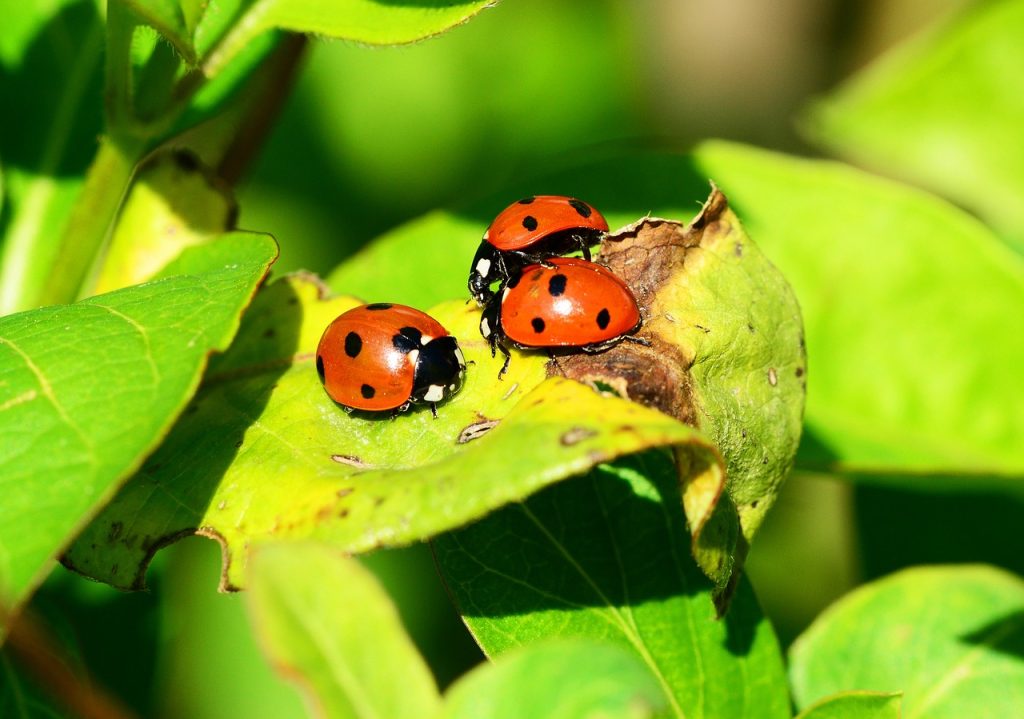
Pest control. It’s one of those garden topics that make people groan because, let’s face it—bugs can ruin the dream of a thriving garden. But what if we’re looking at pest control all wrong? What if we’re waging war on a system that’s smarter, more adaptable, and already knows how to keep itself in balance?
Why Organic Pest Control?
The garden, whether it’s an herb and spice garden, is a complex, thriving ecosystem—think of it as a mini-jungle, a carefully balanced web of relationships between plants, insects, soil, and microorganisms. When you introduce harsh chemicals into the equation, you’re not just killing pests. You’re disrupting a whole community of life that keeps your plants healthy.
Organic pest control is about working with nature, not against it. It’s less about eradicating pests and more about managing them. You’re taking advantage of natural systems, creating an environment where pests aren’t the dominant force but simply one part of a balanced ecosystem.
The Methods
Here are some organic techniques that won’t just minimize pests—they’ll build a resilient garden that’s healthier, more vibrant, and ultimately easier to maintain.
1. Companion Planting: The Strategic Pairing
Plants, like people, thrive in good company. By placing certain plants together, you can actually repel pests naturally. Basil and tomatoes, for example, aren’t just a culinary match—they’re great friends in the garden, too. Basil helps keep aphids and mosquitoes at bay, and tomatoes provide a protective canopy for basil. Nasturtiums planted with cucumbers attract aphids, drawing them away from the main crops. Marigolds? They’re like the garden’s natural pesticide, repelling nematodes and beetles while adding bursts of color.
2. Natural Predators: Recruiting the Right Team
Ladybugs, lacewings, and spiders are the unsung heroes of pest management. They’re the ones who naturally control aphids, mites, and other problematic bugs, and they do it without disrupting the ecosystem. Attract these allies by planting diverse flowers and herbs. Sunflowers, fennel, and dill all create inviting habitats for beneficial insects. Think of them as your garden’s bouncers, working day and night to keep the peace.
3. Neem Oil: Nature’s Potent Repellent
Neem oil is derived from the seeds of the neem tree, and it’s an organic powerhouse in pest control. A few sprays on leaves can prevent harmful insects from feeding and even disrupt their reproductive cycles. But here’s the beauty of it: neem oil doesn’t harm beneficial insects like bees and butterflies. Apply it in the early morning or late evening when pollinators aren’t active, and watch your pest problems recede.
4. Diatomaceous Earth: Tiny Fossils, Big Impact
Diatomaceous earth is a fine powder made from fossilized algae. It might look unassuming, but it’s deadly to soft-bodied insects like slugs and beetles. Sprinkle it around the base of plants or on problem areas. The powder works by dehydrating insects, so it’s as low-impact as it gets. Just reapply after heavy rain, and your plants will stay protected without harmful chemicals.
5. Crop Rotation: Breaking the Pest Cycle
Insects and diseases often develop an attachment to certain plants. Keep planting the same thing in the same place, and you’re basically setting the dinner table for them. Crop rotation disrupts this cycle. By rotating plant families each season, you’re making it harder for pests and diseases to take hold. It’s a simple principle but incredibly effective.
6. Homemade Sprays: The DIY Approach
You don’t need fancy products to tackle pests. Try mixing garlic and chili with water, then spray it on plants to repel aphids and caterpillars. Or use a mild soap-and-water solution as a contact insecticide for soft-bodied pests. These homemade solutions are simple, cheap, and surprisingly effective. They’re like the home remedies our grandmothers used—they work because they’re tried and true.
Beyond the Bugs: Building a Healthy Ecosystem
Organic pest control isn’t just about fighting insects; it’s about cultivating a whole ecosystem. The goal isn’t zero pests—it’s a garden where pests and plants exist in balance. And with time, you’ll see that nature has its own systems to keep things in check. By adopting these methods, you’re not just protecting your plants; you’re creating a resilient, self-sustaining garden.
What’s even better? You’ll find that as your garden grows more naturally balanced, you’ll spend less time worrying about pests and more time enjoying the simple joy of tending to it.
